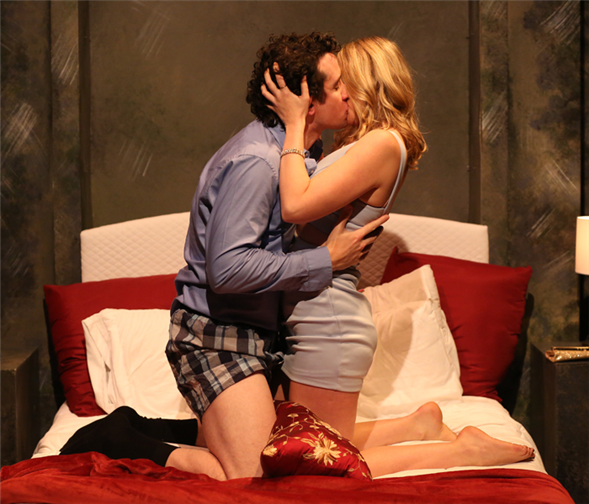Translate Page

In praise of one-acts
---
Neil LaBute's What Happens in Vegas contains all the elements of a typical play. Its two characters are developed with specificity and nuance; its plot includes rising action and resolution; and its final moment firmly concludes the story's arc. By the time that arc finishes, however, the night is still young. LaBute's piece lasts a mere 25 minutes, which as the writer points out, "doesn't provide a full evening for people."
That's one reason the one-act is a rare breed, with only a handful of New York companies (like Ensemble Studio Theatre and the Riant Theatre) regularly staging shorter works. 59E59 has joined that group as well, producing What Happens in Vegas and three others in the Neil LaBute New Theater Festival through February 5. Co-presented annually with St. Louis Actors' Studio, once in Missouri and once in New York, the evening of one-acts champions new work from up-and-coming writers plus one new piece from its namesake.
"I wish [short plays] were produced more often," LaBute says. "Artistically and on the business side as well, people are looking at it as, 'How do I take care of this orphan child that is at its best really fun, but harder to make an evening of theatre out of?' Therefore they've got to find two or three other pieces, and do some thematic thing."
Speaking of thematic links: LaBute also has a short play featured in La MaMa's AdA Festival, which is running through February 5. Now in its third year, AdA stands for Author Directing Author, in which a group of playwrights direct each others' work. All the pieces in this year's collection explore the theme of power, and LaBute's play, I don't know what I can save you from, follows a daughter reconnecting with her estranged father. (He'll be directing a festival entry by the Spanish playwright Marta Buchaca.)
{Image1}
Of course, LaBute isn't the only short-form writer in town. "I think the short form is a care-free way to write as imaginatively as possible," says playwright Leah Nanako Winkler. "You can do whatever you want. With a longer play, typically if you write a bad script, that's 80 pages of bad. With shorter form, you write a bad short play and you move on with your life!"
Winkler has learned these lessons first-hand. An alumna of Ensemble Studio Theatre's Youngblood writing program and winner of the 2015 Samuel French OOB Short Play Festival, she says she found her voice as a playwright by churning out one-acts. "When you get your work up in front of an audience, you learn so much about what works and what doesn't work in your voice," she says. "You start to kind of train yourself. I think sometimes doing rounds of short plays is like doing laps in the swimming pool for a writer."
One-acts and 10-minute pieces also provide networking opportunities for working artists, particularly among smaller theatre groups like Dixon Place, Fresh Ground Pepper, and Bowery Poetry Club. "With a short play, it's such an 'in' to so many different companies," says Winkler. "It really helps you find collaborators. Short plays are a perfect testing ground to see if that working relationship is going to be successful."
LaBute challenges playwrights to play with the "resilient little form," but to underestimate it at their own peril. "It is a great difficulty, and surprisingly so, being artful in a handful of pages," he says. "Try writing just a 10-page play, see how you do. Ten pages. Man, they go fast."
---
TDF Members: At press time, discount tickets were available to AdA. Go here to browse our current offers.
Follow Jack Smart at @JackSmartWrites. Follow TDF at @TDFNYC.
Photos by Carol Rosegg. Top photo: Michael Hogan and Clea Alsip in What Happens in Vegas.